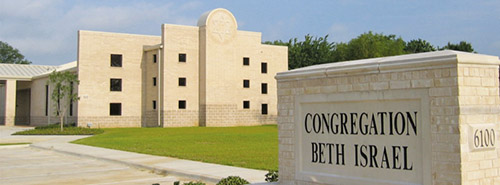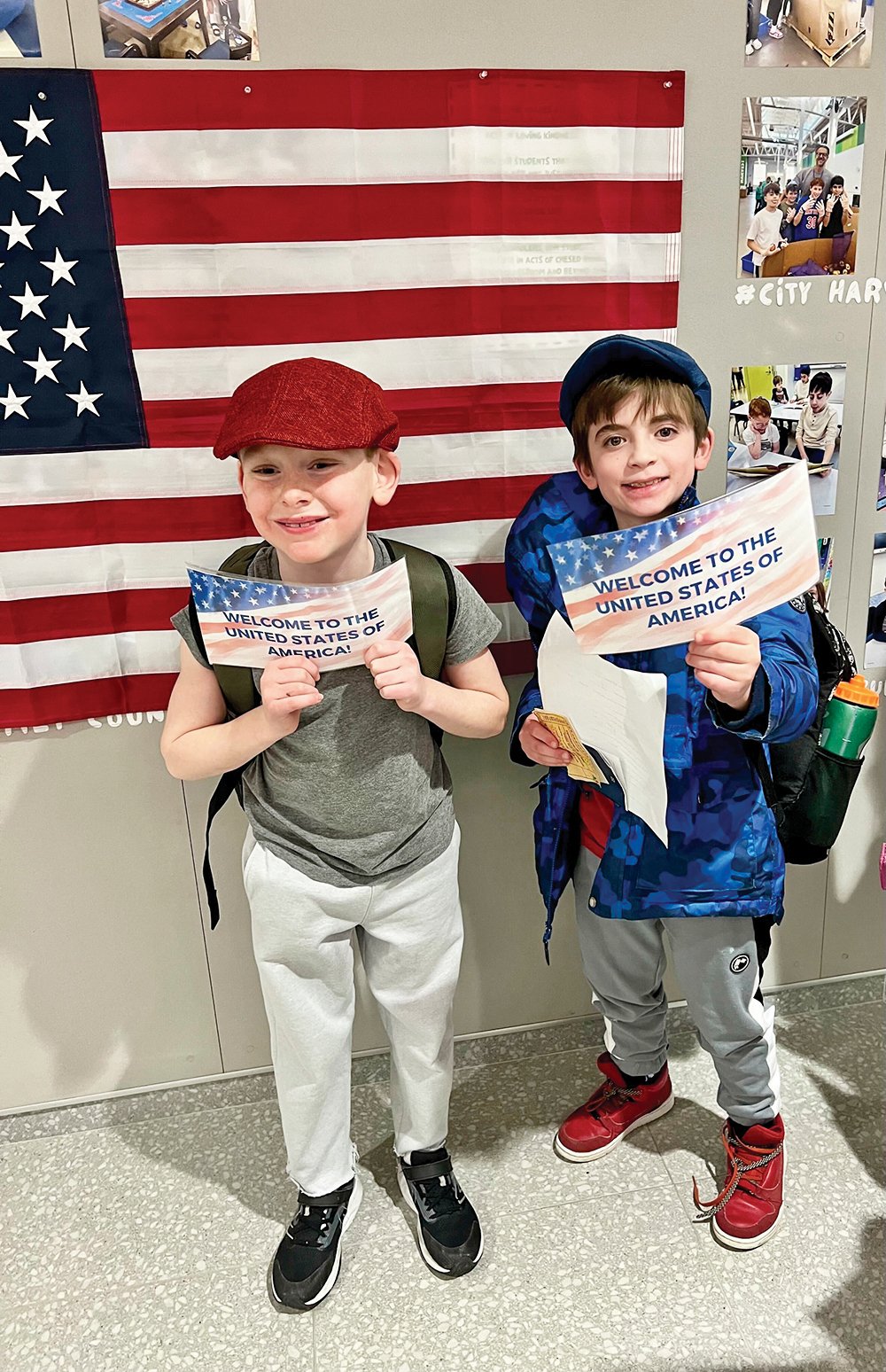

By all news accounts, it was a harrowing situation for the rabbi and three congregants, as well as the livestream viewers, that thank God did not turn tragic.
Rabbi Charlie Cytron-Walker had admitted the stranger into Congregation Beth Israel of Colleyville, a suburb of Fort Worth, Texas, before Shabbat morning services on January 15. He even made him a cup of tea, thinking the unusual visitor was just looking to get out of the cold weather.
The visitor, Malik Faisal Akram, sat in the pews as the service started, with only three other congregants attending and other congregants watching the livestream. Then, about 40 minutes into the service, when the rabbi turned his back on the congregation, he heard a click. A few minutes later, he approached the stranger and Akram showed that he had a gun, pointing it at the rabbi. Akram started waving the gun and shouting, a congregant quietly alerted law enforcement, and a tense one-hour hostage situation began.
In the hours that followed, about 200 local, state and federal law
enforcement officers gathered near the synagogue, including FBI hostage negotiators from Quantico, Virginia. Authorities learned that Akram, a Pakistani-born British citizen, had arrived in New York on New Year’s Eve and traveled to Colleyville, obtaining a gun along the way.
During the hostage crisis, Akram ranted about the United States and demanded the release of his “sister,” Aafia Siddiqui, a Pakistani with suspected ties to al-Qaeda who was convicted in 2010 of trying to kill U.S. Army officers in Afghanistan when she was taken into custody. Siddiqui is imprisoned in a federal women’s prison in Fort Worth.
As the rabbi and Jeffrey Cohen, one of the other hostages, described afterwards, they worked to try to keep things calm and engage Akram in conversation. FBI negotiators became involved.
As the evening wore on, Akram grew increasingly agitated. “The last hour or so of the standoff, he wasn’t getting what he wanted. It didn’t look good. We were terrified,” the rabbi later told CBS.
Crediting security training they received earlier that was arranged by the local Jewish Federation and provided by ADL, SCN (Secure Communities Network), the local police department and other groups, Cytron-Walker and Cohen quietly communicated with each other and the other hostages and took positions near an exit. At one point Akram told the remaining hostages to get on their knees. When Cohen refused, Akram went to sit down and Cytron-Walker threw a chair at him, yelling at the others to run.
Cytron-Walker, Cohen and the other hostages made it through the exit. Moments later, shots and an explosion were heard. Authorities reported that Akram had been killed.
In the immediate aftermath of the harrowing hostage crisis, Jewish organizations on the national, state and local level mobilized to learn from the situation and offer helpful perspectives to community members.
The Community Security Service, which offers training and resources to synagogue-based volunteer security officers, offered an online security briefing on Monday night, January 17, featuring Greg Ehrie—vice president for law enforcement and analysis at the Anti-Defamation League. Ehrie has 22 years of experience with the FBI, including service as chief of the FBI’s domestic terrorism operations section and as special agent in charge of their New York field office.
Ehrie spoke to an audience of over 600 on Zoom and counseled that “this is still an evolving situation and we are looking for lessons learned.” He surmised that, judging from the circumstances, “this doesn’t seem like a well-conceived plot,” and he believes “there are pieces of this that we haven’t seen yet.” He pointed out that two youths were arrested by British security services in connection with the incident.
Ehrie offered four take-away messages to all attendees of the Zoom security briefing:
1. The threats are increasing.
2. Synagogue security volunteers are the frontline people and serve as visual deterrents.
3. Training and education in shul security is essential.
4. Partnerships are key, because no one organization can do it on their own.
Similar security briefings, with experienced law enforcement leaders, were held in this area by the UJA-Federation of New York, the Jewish Federation of Northern New Jersey and others. The Orthodox Union’s Advocacy Center and the Conference of Presidents of Major American Jewish Organizations held an online briefing on Tuesday, January 18 for synagogue leaders with the U.S. Secretary of Homeland Security Alejandro Mayorkas and FBI Deputy Director Paul Abbate.
In an email to media contacts on Sunday, January 16, the Anti-Defamation League’s NY/NJ office offered resources to attempt to put the hostage crisis into a helpful context. The email reminded readers of the high rates of reported antisemitic acts in 2020 in New York and New Jersey, as indicated in the ADL’s annual Audit of Antisemitic Incidents. The email also shared a link to a fact sheet about Aafia Siddiqui, which reported that “Afghan police found in Siddiqui’s possession documents on making explosives, descriptions of New York City landmarks … and excerpts from ‘Anarchist’s Arsenal,’ a book describing various types of incendiary and explosive techniques.”
The report also revealed that allegations against Siddiqui come from her ties to detainees at Guantanamo Bay, including her husband, Ammar al-Baluchi, the nephew of Khalid Sheikh Mohammed—the chief planner of the September 11 attacks.
A statement released the same day from the Orthodox Union noted the importance of the federal Nonprofit Security Grant Program (NSGP) and urged the federal government to “increase the annual allocation nationwide to $360 million (instead of the currently proposed $180 million).” On Tuesday the Orthodox Union’s Advocacy Center sent an email to supporters reiterating this call and asking recipients to use a webform to send a message to their U.S. Representatives and Senators, “urging them to boost NSGP funding to $360 million to protect your family and community.”
The suggestion to contact Congressional members and request an increase in NSGP funding was also included in an email sent by the Jewish Federation in the Heart of New Jersey to its supporters on Monday.
On the evening of the crisis, President Joe Biden issued a statement that said in part: “I am grateful to the tireless work of law enforcement at all levels who acted cooperatively and fearlessly to rescue the hostages. … Let me be clear to anyone who intends to spread hate—we will stand against antisemitism and against the rise of extremism in this country. That is who we are, and tonight, the men and women of law enforcement made us proud.” Vice President Kamala Harris issued a statement the next day that thanked law enforcement officials and stated: “What happened at Congregation Beth Israel is a reminder that we must speak up and combat antisemitism and hate wherever it exists.”
In a letter to Rabbi Cytron-Walker, Rabbinical Council of America President Rabbi Binyamin Blau and Executive Vice President Rabbi Mark Dratch shared their “deep gratitude to God, to law enforcement, and to all those who prayed for your wellbeing, for the safe and positive outcome that followed hours of danger and uncertainty.” They continued: “By all accounts, you handled the attack on your synagogue and the hostage situation of which you were a victim with courage and dignity, representing your community and our people with aplomb,” and wished him, his family and community “healing and wellbeing.”
“Whenever a person or community is targeted because they are Jewish, we recognize this as a threat to each and to all of us,” said Rabbi Chaim Strauchler, rav of Congregation Rinat Yisrael in Teaneck. “We are grateful to Hashem for protecting the hostages. We commend Rabbi Charlie Cytron-Walker for his clearheaded leadership and courage in the most trying of circumstances. We appreciate the professionalism and support of law enforcement officials and U.S. political leaders.
“This attack reflects an ongoing new reality for American Jews. We are witnessing a resurgent antisemitism that will require both confrontation with the minority who seek our harm and ongoing partnership with the majority who support us and recognize that this hatred is ultimately a threat to society as a whole.”
“This incident reinforces for us the importance of proper vigilance and training for our security volunteers and congregants,” said Rabbi Steven Miodownik, rav of Congregation Ahavas Achim in Highland Park. “It also served as a stark reminder why tragically our shuls and schools can no longer have an ‘open door’ policy, and why we cannot be as welcoming to strangers as we would like to be. It is so sad to have to live in a fortress.
“That a specific shul was targeted—from overseas—for this assault must also highlight for us how interconnected we all are. When I heard after Shabbos what was going on in Texas, I felt a stabbing pain in my stomach and realized how easily this could have been happening here in New Jersey. But in reality whenever a Jew is threatened, we are all threatened. Finally, we rejoice and thank God that everyone escaped safely.”













